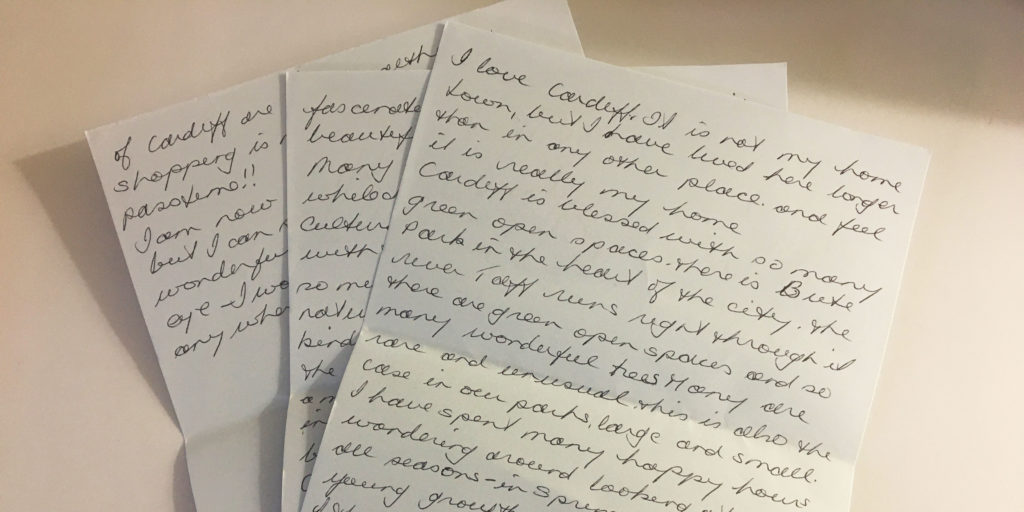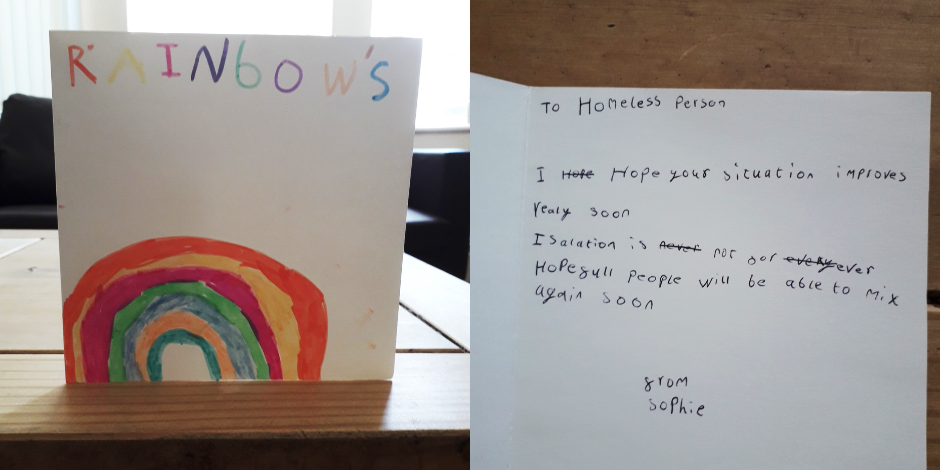While letter writing was once viewed as a dying art, the 2020 pandemic has seen the practice gaining new-found purpose in connecting those young, old, and everything in between

The first handwritten letter is thought to have been sent way back in 500BC and since then, countless relationships have been founded and maintained by putting pen to paper.
Your grandparents are likely to remember a time when sending letters was commonplace, offering the closest tactile way to communicate with friends scattered far and wide, that circumstance allowed.
However, with the advent of technology and instant messaging, the art of letter writing has in many ways slipped from widespread use.
That is until now.
During 2020, there has been a resurgence in the medium, not just among loved ones, but between strangers too – often through a number of campaigns which aim to connect those struggling with loneliness.
In spring 2020, New Yorker staff writer, Rachel Syme, set up Penpalooza, an initiative that uses social media to pair up pen pals from across the globe.
The fact the scheme now has over 7,000 members from 50 different countries is testament to the way letters are transcending generational lines.
But it is not just Gen Z that are rediscovering the power of the written word.
Reviving the lost art
In October, the Sherman Theatre launched Love Letters to Cardiff, a project that encourages over 50s to pen a letter expressing their love and connection to the city.
The initiative is overseen by Sherman 5, a team that supports older people, and those with visual and hearing impairments who have difficulties accessing the theatre.
People who signed up for Love Letters to Cardiff were given a free writing pack, and once their letters were sent in, they were shared on the theatre’s website.
Each of the 18 participants also received another letter in exchange through which they could reminisce and bond over other people’s experiences of a city they call home.
Sherman 5 coordinator, Claire Bottomley, is thrilled with the response the project has received and says letters have proved a powerful way for participants to exercise their artistic expression.
“People have enjoyed taking a trip down memory lane and sharing their memories and experiences with others,” she says.
“The letters have got quite a breadth of experience. Some people have got memories going back to the 60s, others are talking about recent experiences of Cardiff.”
Participants were free to choose how they received the exchange letter, with some opting to have it read out for them by staff or family members.
[Letters] really are like a hug in an envelope, or a little parcel of hope that can be treasured and revisited whenever needed
Claire explains that one woman requested hers be sent by post so that her daughter could read it out to her and they could share the experience together.
While Coronavirus has led to a pandemic of entirely different sorts – a mental health crisis fuelled by isolation – projects like Love Letters from Cardiff have helped tackle feelings of loneliness, especially for those who may not have access to technology.
Participants of the scheme say that it led to boosts in their mental wellbeing, as well as encouraging them to reach out to people that they have not spoken to in a while.
One individual says, “I enjoyed thinking about why Cardiff is special to me and putting this into words,
“An opportunity to do some creative writing gave me a sense of achievement and to see my words on the Sherman Theatre website provided a boost to my morale.”
Social media privilege
There are few things required to write a letter. Paper, a pen, stamps, but most importantly time – something many found themselves blessed with during the two lockdowns.
While social media can help bring people together, not everyone has the technological privilege to access or use it.
Welsh homeless charity, The Wallich, launched its Letters Against Loneliness campaign back in April to help tackle loneliness among the homeless community.
With most of their clients being digitally excluded, letters offered them the chance to connect with others and receive support in shelters across Wales.
Abi Street, Wallich communications officer, agrees that loneliness is a big issue among homeless people and says the scheme has helped reduced distance between those experiencing homelessness and the wider public.
“Just knowing that someone was thinking about them makes a huge difference, especially during the lockdowns,” she says.
Letters have not only helped those experiencing homelessness feel valued but has granted them a means to connect with people in a way they otherwise may not have.

Putting pen to paper
There is a tangibility to the written word that is near impossible to replicate in the digital realm.
Founder of The Handwritten Letter Appreciation Society, Dinah Johnson, believes letters reinstate a sense of intimacy back into our lives.
“It sounds daft but they really are like a hug in an envelope, or a little parcel of hope that can be treasured and revisited whenever needed,” she says.
While the pandemic rages on, letters have proved instrumental in the unrelenting battle against loneliness – bringing necessary human interaction into the lives of people from all walks of life.
Dinah adds, “It will be fascinating to see if the art of letter writing continues in the months to come as we gradually get back to how we were.”
Once life does return to normal, could we see letter writing taking its place as a universal mode of communication once again?
Knowing the power it has on mental wellbeing, this could very well be the case.
But until then, with visits to the grandparents not being entirely possible right now, penning them a letter could be the next best thing – for both your sakes.
Loneliness in numbers:
- One-third of over 50s said they felt lonely during the initial lockdown
- 44% experienced difficulties with their mental health
- Half of older people with a disability reported feelings of loneliness
- 55% of individuals living alone were lonely
- 78% found not seeing friends and family difficult
- A general over-reliance on online information resources made older people feel isolated and left out
What can be done:
- Greater distribution of printed information materials
- Less reliance on online resources
- Better mental health support for the elderly
- Free local newspapers for those who do not have access to the internet
- Multilingual leaflets and letters from Welsh Government
- Increased support groups and community initiatives
(Figures from October 2020 report by Age Cymru)
Letters have helped 74-year-old Gloria Haynes cope with loneliness in lockdown. Watch her story here:
